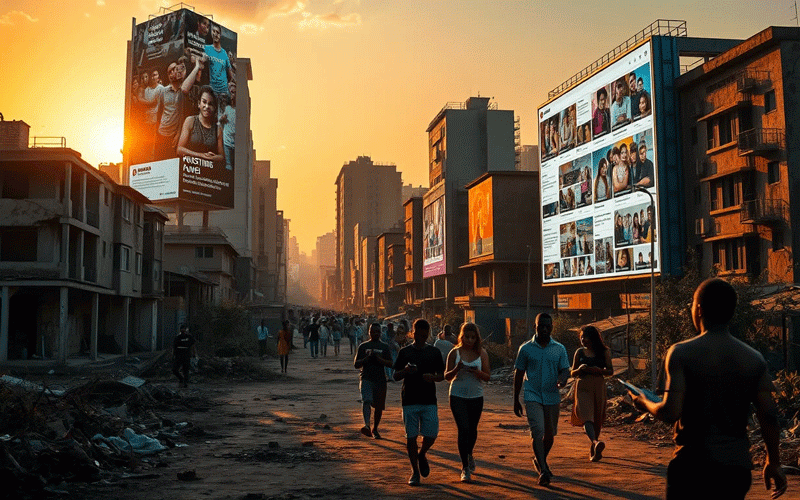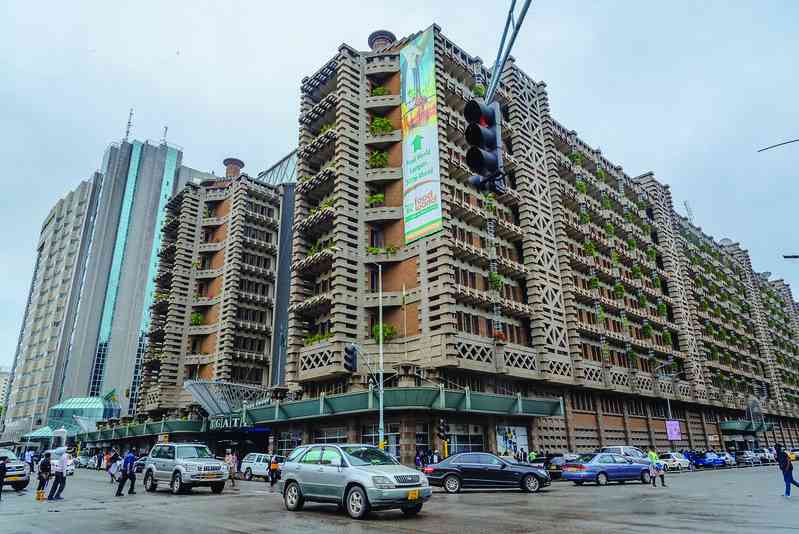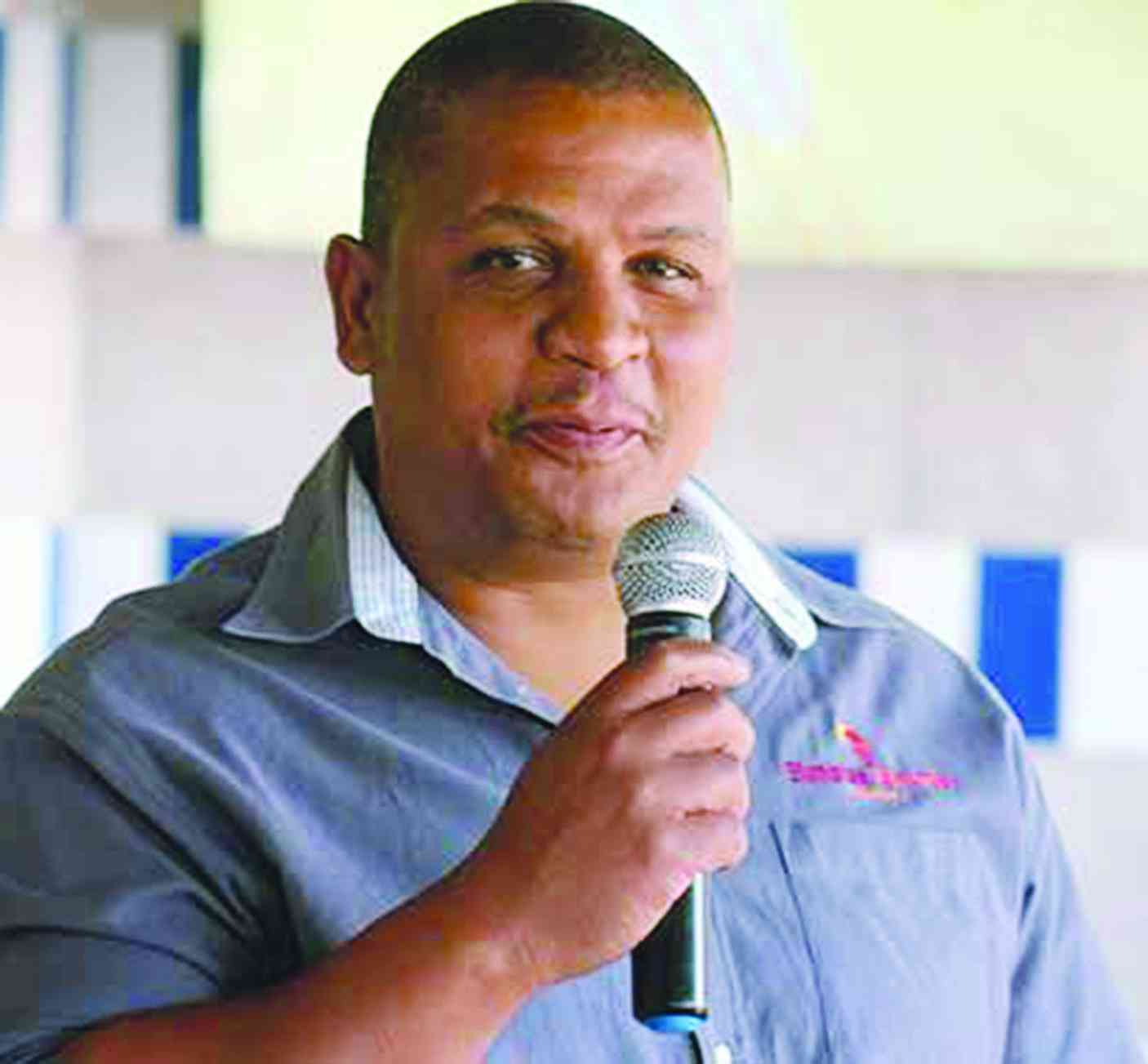
IT is 7am in a small town in Zimbabwe. Tendai, a young man brimming with dreams and potential, starts his day not with purpose but with a swipe and a scroll through his social media feeds.
As the sun rises, he sinks deeper into the digital abyss, lost in a world designed to capture his attention yet offer nothing of real value in return. By noon, Tendai has watched hours of videos, liked countless posts, and shared fleeting thoughts — but has accomplished nothing of substance.
Tendai’s story is not unique; it is a microcosm of a larger, growing crisis across Africa. This is the new reality for many of Africa’s youth. On a continent where nearly 60% of the population is under 25, the future's promise lies in the hands of the young. Yet, with unemployment soaring, countless young Africans like Tendai turn to social media to fill the void. This digital refuge, however, comes at a steep cost — a cost not just to their futures but to the future of the continent.
Aristotle once said, “We are what we repeatedly do”. But what happens when what we repeatedly do is squander our time on distractions that offer no real value? Social media has become the thief of time for Africa’s youth, robbing them of opportunities to learn, grow, and build.
This article delves into the ethical implications of this time theft, exploring how social media is undermining Africa’s potential and what can be done to redirect this lost time toward meaningful, productive endeavours.
Escapism and lost potential
Facing widespread unemployment and economic struggle, social media has become a sanctuary for many African youths — a digital refuge where they can temporarily forget the challenges of daily life.
The allure of social media is undeniable: it offers endless streams of entertainment, the illusion of connection, and a platform for self-expression that is otherwise hard to find in a world of limited opportunities.
- Open letter to President Mnangagwa
- Feature: ‘It’s worse right now than under Mugabe’: Sikhala pays the price of opposition in solitary cell
- Masvingo turns down fire tender deal
- Human-wildlife conflict drive African wild dogs to extinction
Keep Reading
For a generation confronting the stark reality of joblessness, exacerbated by an older generation reluctant to step aside, social media provides a much-needed escape from the pressures and disappointments of the real world.
Unfortunately, every choice has an opportunity cost, and the price of this escapism is steep — costing Africa its future. Time spent scrolling through feeds, watching videos, and engaging in online banter is time that could be invested in building skills, starting businesses, or engaging in civic activities. Instead of channelling their energy into activities that lead to personal and economic growth, many young Africans are trapped in a cycle of passivity.
They become consumers of content that offers little long-term value, trading real-world potential for momentary pleasure.
This is the tragedy of lost potential. Africa’s youth, with all their creativity, energy, and ambition, spend countless hours in the virtual world while the real world — where their talents could make a tangible difference — remains neglected.
The opportunity cost is immense. This is not a manifesto against technology or being online; one can be highly productive online, learning, coding solutions, or engaging with peers. The issue here is with social media.
Every moment spent on it is a moment lost to education, innovation, and community building. The continent’s brightest minds risk becoming passive observers in their own lives, distracted from the work that needs to be done to build a better future.
Economic distraction
The role of social media as a distraction is particularly significant in Africa, home to one of the youngest populations globally, with over 400 million individuals aged 15-35. With such a large, vibrant population, Africa should be a productive powerhouse, yet the pervasive influence of social media diverts this potential, fostering a culture of consumption rather than creation.
The numbers tell a stark story. In South Africa, the average social media user spends three hours and 41 minutes daily on platforms like TikTok, Facebook, and Instagram. This adds up to nearly 1 350 hours a year —time that could be spent developing new skills, engaging in entrepreneurship, or contributing to community development (Meltwater).
Adding to this issue, network providers often offer heavily subsidised data bundles specifically for social media usage, making it far more affordable for young Africans to browse these platforms than to access educational or productivity-focused websites.
This creates a perverse incentive structure, where the path of least resistance leads young people deeper into the social media rabbit hole instead of toward more constructive online activities.
Imagine if even a fraction of this time was redirected toward productive pursuits. The potential for growth is enormous.
For example, Rwanda’s Digital Acceleration Project has focused on digital skills training for its youth, resulting in a growing tech ecosystem attracting international attention. Young Rwandans are being encouraged to create apps, start businesses, and contribute to their economy rather than just passively consuming content online.
This proactive approach to youth engagement could serve as a model for other African nations.
But for this shift to occur, there must be a collective realisation that while social media offers a sense of community and connection, it is often a superficial substitute for real-world engagement. If Africa’s youth can break free from the distractions of social media, the continent could harness its potential to drive innovation, development, and lasting change.
Dependency and exploitation
Africa’s relationship with social media is marked not only by consumption but also by a troubling dependency on platforms that do little to invest in the continent's future.
This digital dependency echoes the colonial era, where foreign powers extracted resources and wealth from Africa while offering little in return. Today, the exploitation may be more subtle, but the impact is no less damaging.
Despite being home to millions of active users, many African countries are excluded from monetisation programmes on platforms like TikTok and Instagram. While content creators in the United States or Europe can earn substantial income from their posts, creators in Africa often do not have the same opportunities, even though they generate significant traffic and engagement.
Take Nigeria, for example. The country has one of the largest Instagram user bases in Africa, yet Nigerian creators are often excluded from monetisation programmes that reward content production.
This means that while their content drives ad revenue for these platforms, the financial benefits do not flow back to the creators or the local economy. The vast amounts of data generated by African users are collected, analysed, and sold to advertisers, contributing to the bottom lines of companies headquartered far from Africa’s shores.
This exploitation extends beyond individual creators to the broader economy. African countries are largely consumer markets for these global tech giants, but the economic benefits are rarely reinvested locally.
For instance, Facebook’s global revenue from advertising was approximately US$152 billion in 2023, with Africa contributing a significant portion of user engagement. However, the revenue generated from African users largely flows out of the continent, with little reinvestment into local infrastructure or digital literacy programmes that could empower African youth to become creators rather than mere consumers.
This dependency on foreign-owned platforms stifles local innovation and perpetuates a cycle of exploitation. African users are drawn into a system where their attention and data are commodified, while the profits flow elsewhere.
This is a significant lost opportunity for Africa. Imagine if these profits were reinvested in local tech ecosystems, providing the resources needed to build platforms that serve the unique needs of African users and contribute to the continent's economic growth.
AI and controlled narratives
In the digital age, AI is increasingly being used to control narratives and spread misinformation, particularly among Africa's youth. Generative AI — a technology that allows machines to create content such as text, images, or even videos — can produce highly realistic yet completely fabricated media. This can be used to create massive amounts of content tailored to specific audiences, posing a significant risk. For instance, AI can produce personalised content that resonates deeply with individuals’ beliefs or fears, making it more likely to be accepted as truth.
This kind of content, often amplified by social media algorithms that prioritise engagement, can shape public opinion, distort reality, and ultimately influence how young people perceive the world.
For young people who may not have the tools to verify the authenticity of such content, these deepfakes can lead to misguided beliefs, reinforcing biases, and even inciting conflict. This personalised approach not only keeps users hooked but also creates echo chambers where they are exposed only to information that confirms their existing views.
Moreover, AI-driven platforms like social media are designed to keep users engaged by feeding them content that aligns with their interests and emotions.
For Africa’s youth, this means spending more time online consuming tailored content that distracts them from productive activities, further entrenching them in a cycle of misinformation and unproductivity.
Without intervention, this trend could significantly hinder the development of a well-informed and critically thinking generation.
Building local platforms
There is a pressing need for social media platforms designed with the unique needs of African users in mind. While global platforms like Facebook, Instagram, and TikTok dominate, they often prioritise Western perspectives and may not address the specific challenges and opportunities in Africa.
The current controversy in the United States around banning TikTok due to national security concerns should serve as a reminder of the importance of having locally controlled platforms that prioritise user safety and align with regional values.
Developing local platforms can promote education, skill development, and entrepreneurship rather than merely serving as channels for entertainment.
These platforms could be tailored to support African languages, cultural contexts, and economic realities, fostering a more inclusive and productive digital environment. Crucially, local platforms could also better monetise and support African creators, entertainers, and small businesses, ensuring that the economic benefits flow back to the continent rather than being extracted by foreign tech giants.
Promoting digital literacy
Africa faces a significant digital literacy gap, one that threatens to undermine the benefits of increasing internet access across the continent.
While millions of Africans are now online, many lack the critical skills needed to navigate the digital world effectively. Digital literacy goes beyond basic computer skills; it involves understanding how to use technology responsibly, evaluate information critically, and recognise the ethical implications of online behaviour. It also involves recognising the effects of excessive social media use, including the opportunity cost of time spent online.
Governments, non-governmental organisations, and the private sector must work together to promote digital literacy, especially among young people. This could include integrating digital literacy into school curricula, offering community-based training programmes, and launching public awareness campaigns that highlight the risks of excessive social media use.
Equally important is the need for African youth to develop a healthy scepticism toward the content they encounter online. This means questioning the sources, understanding the motives behind the information, and being aware of how algorithms shape what they see.
Empowering young creators
Empowering Africa's youth to become creators rather than just consumers of digital content is crucial.
This shift requires investments in digital education, entrepreneurship, and local content production. Governments and private sector partners can play a significant role by providing funding, mentorship, and platforms for young creators to showcase their work.
Creating avenues for monetising their content locally, ensuring that the financial benefits stay within the continent, is also essential.
Equally important is the need to challenge the narrative that social media use is inherently unproductive. By promoting platforms that encourage learning, creativity, and entrepreneurship, Africa’s youth can be inspired to use their time online more meaningfully.
Time for change
Africa’s youth represent the continent's greatest hope for the future. However, if the current trends continue, with millions of young people trapped in the digital quicksand of social media, the promise of a brighter future could slip away.
The potential is vast, but so too is the risk of falling into a cycle of distraction and missed opportunities. If Africa is to realise its full potential, the time to act is now. It is time to reclaim the time stolen by social media and redirect it toward building a prosperous, innovative, and self-sufficient future for all.
Nyamande is a technology writer with a focus on startups, tech innovations and tech impact.










